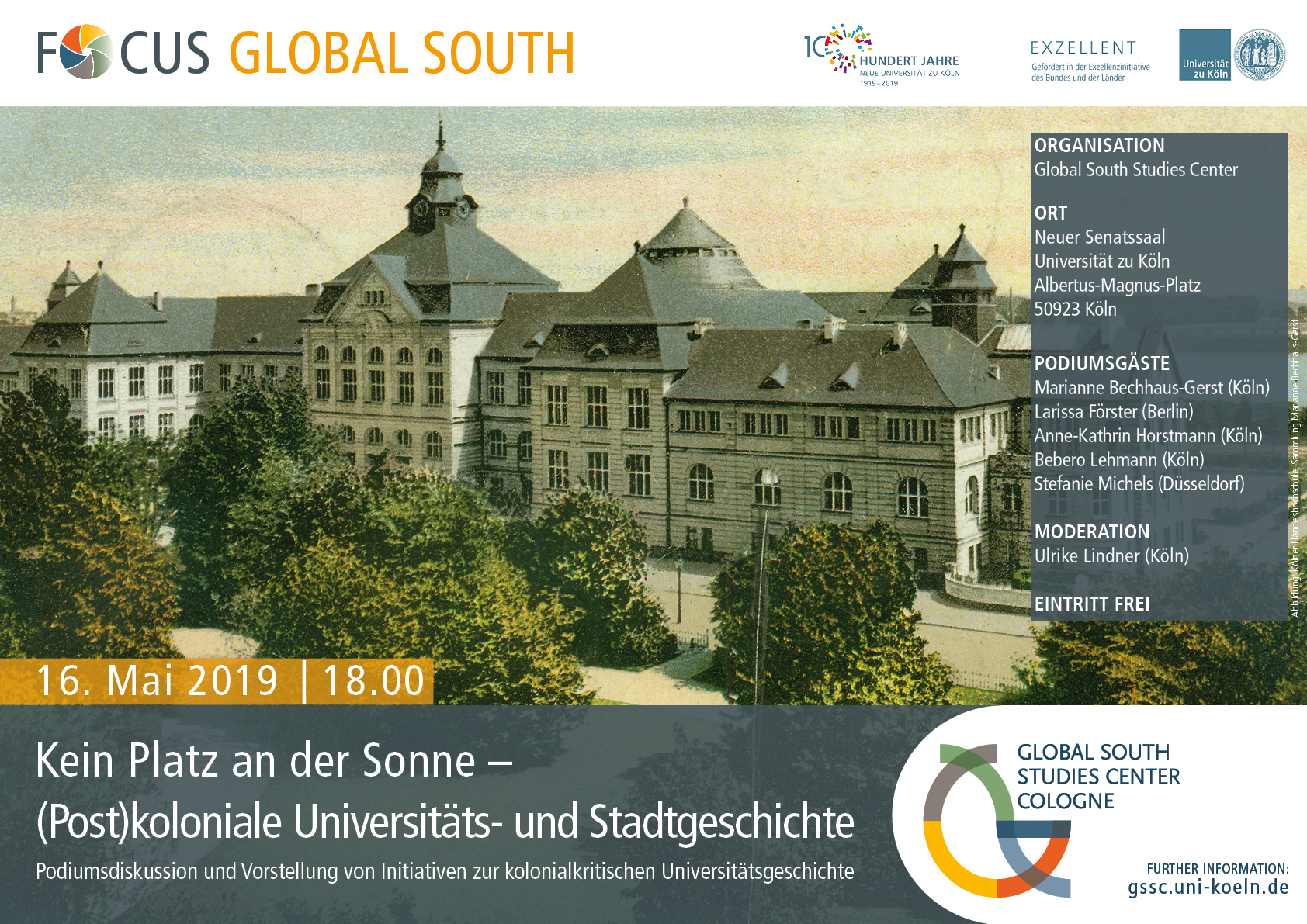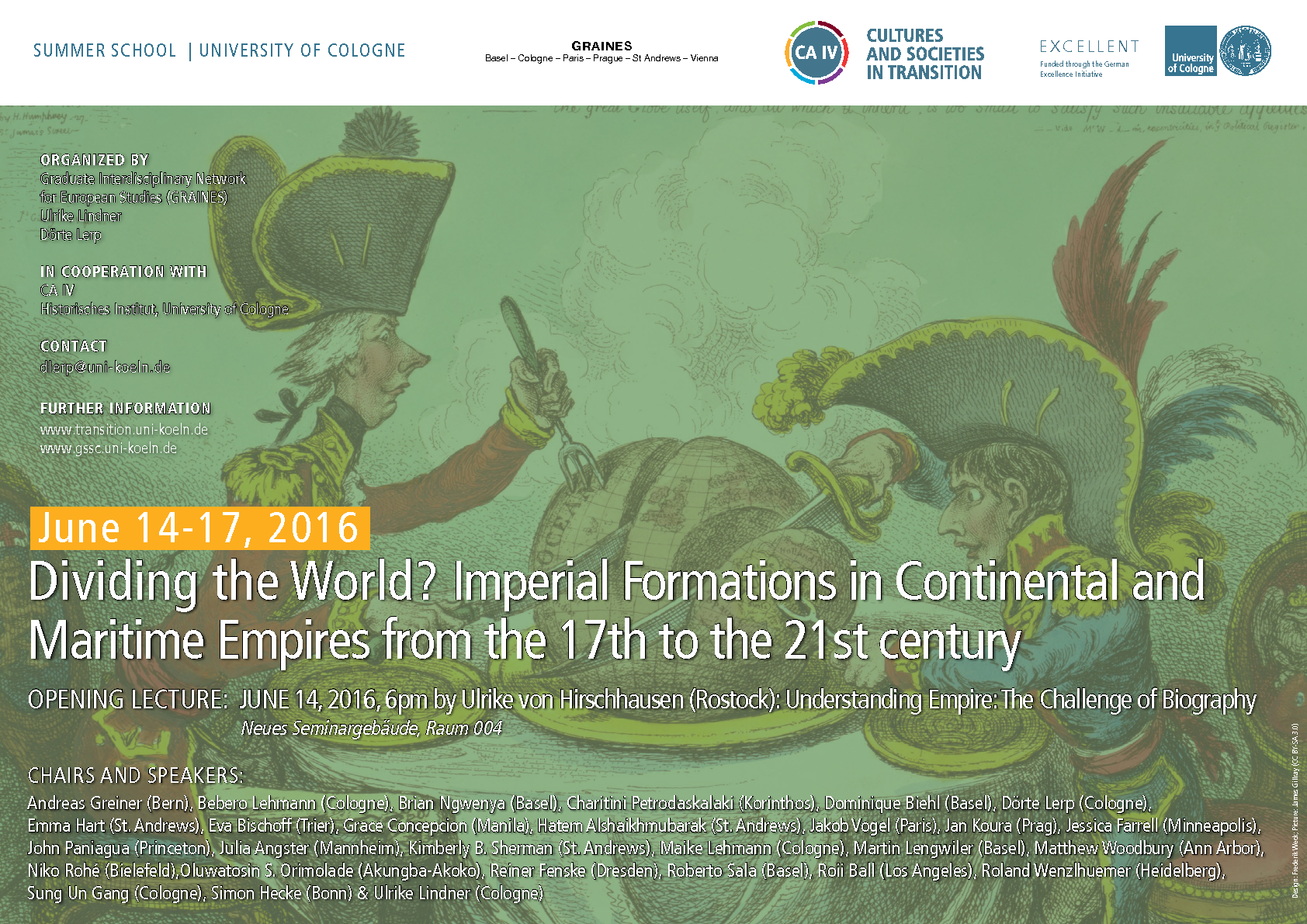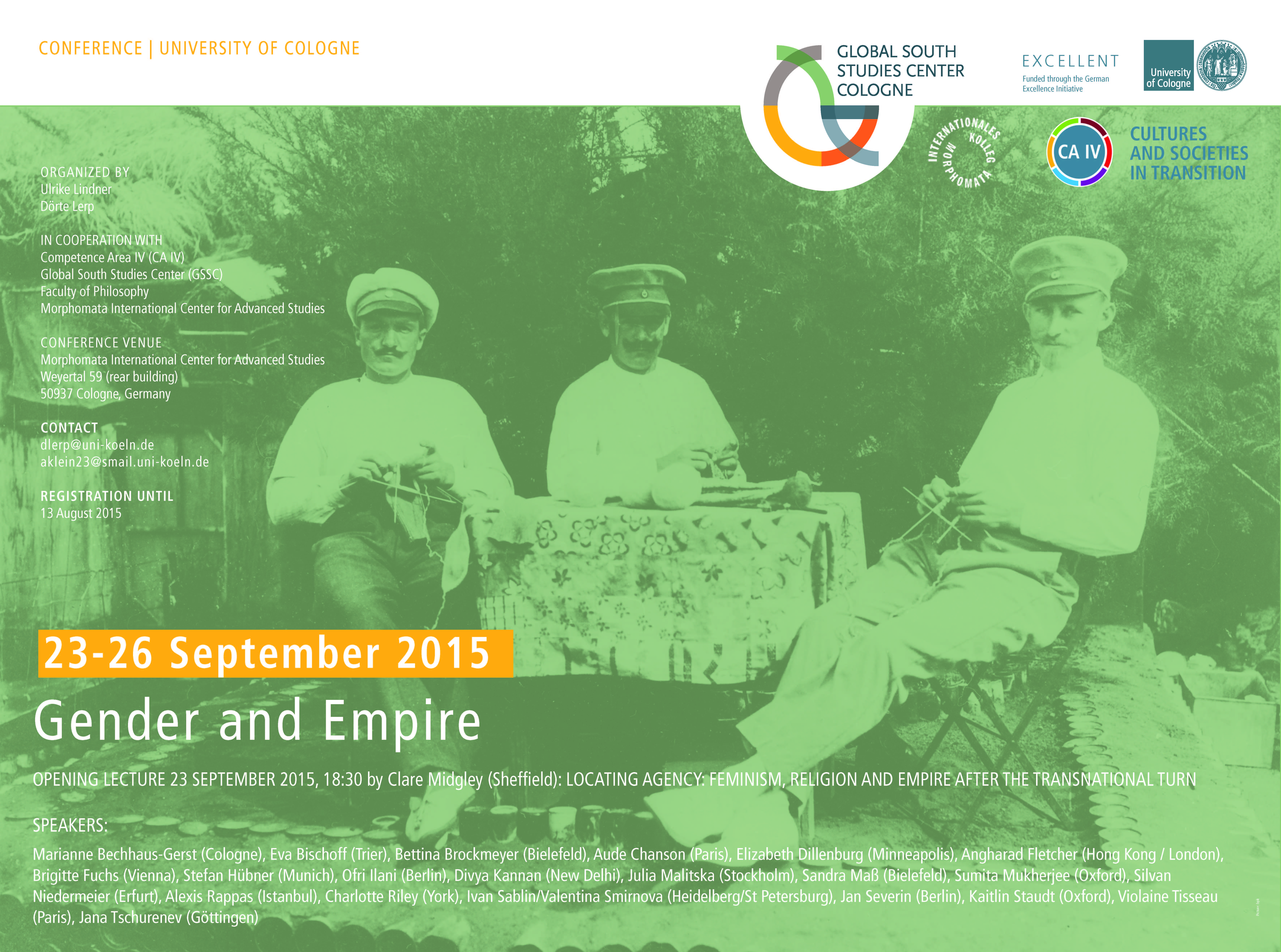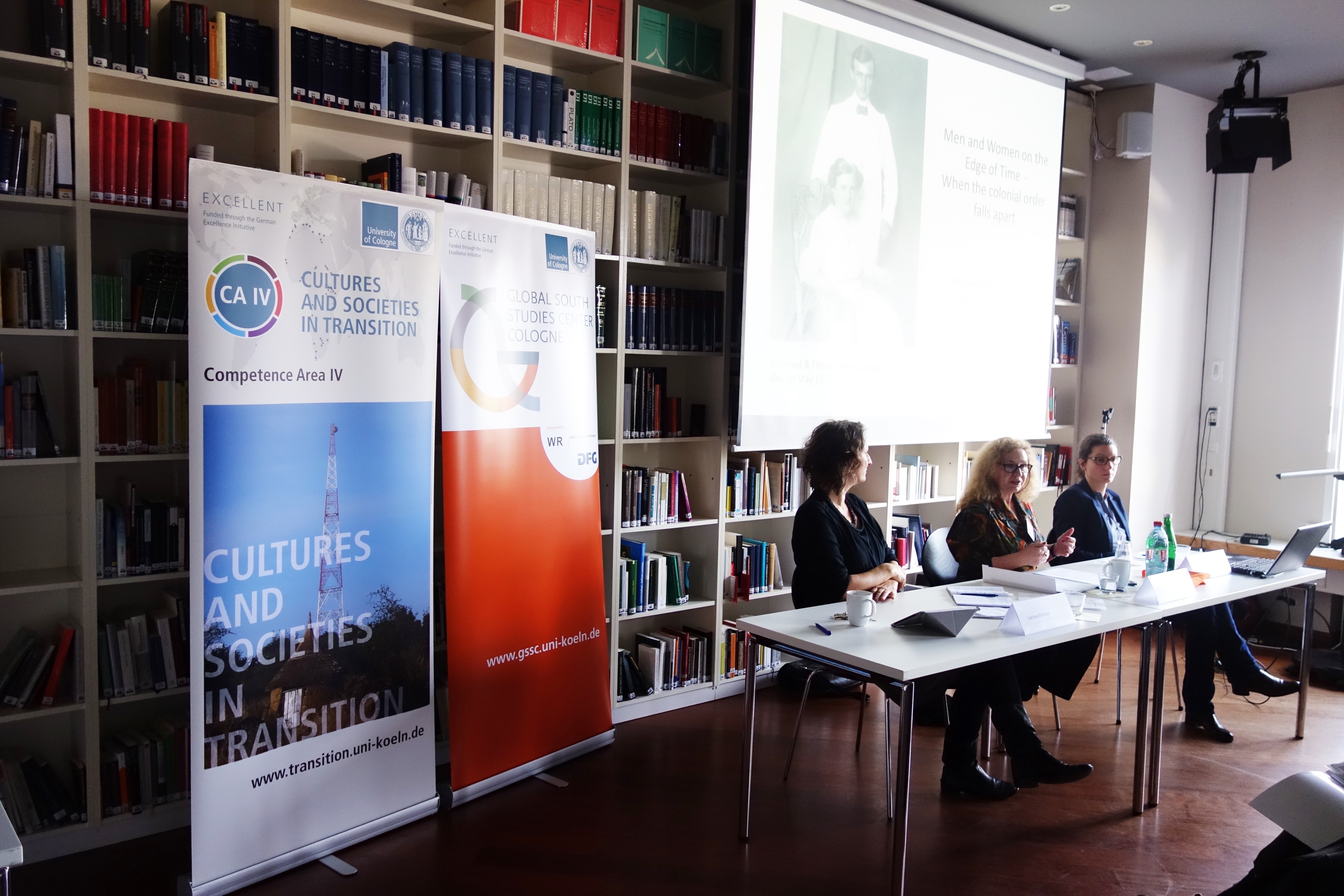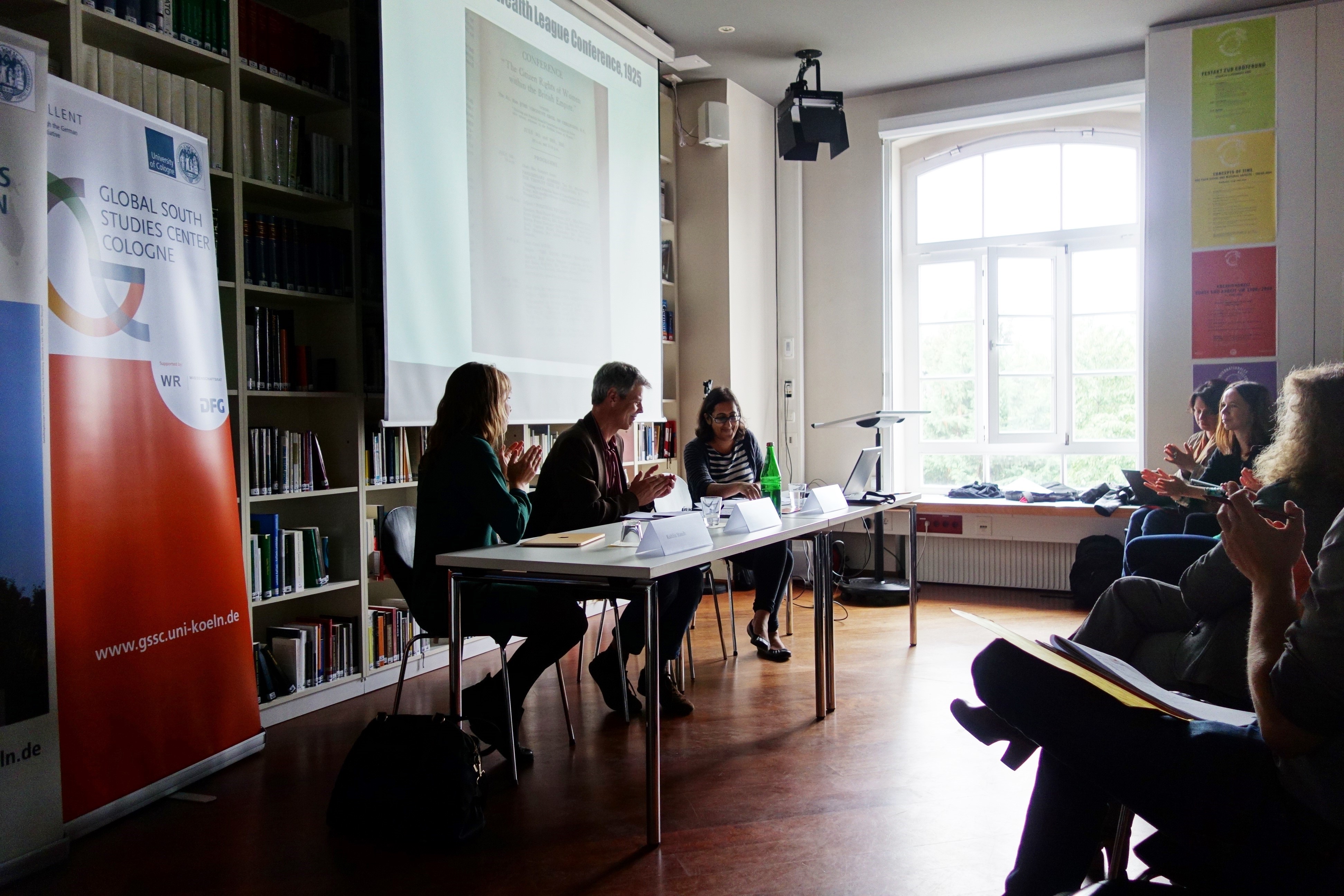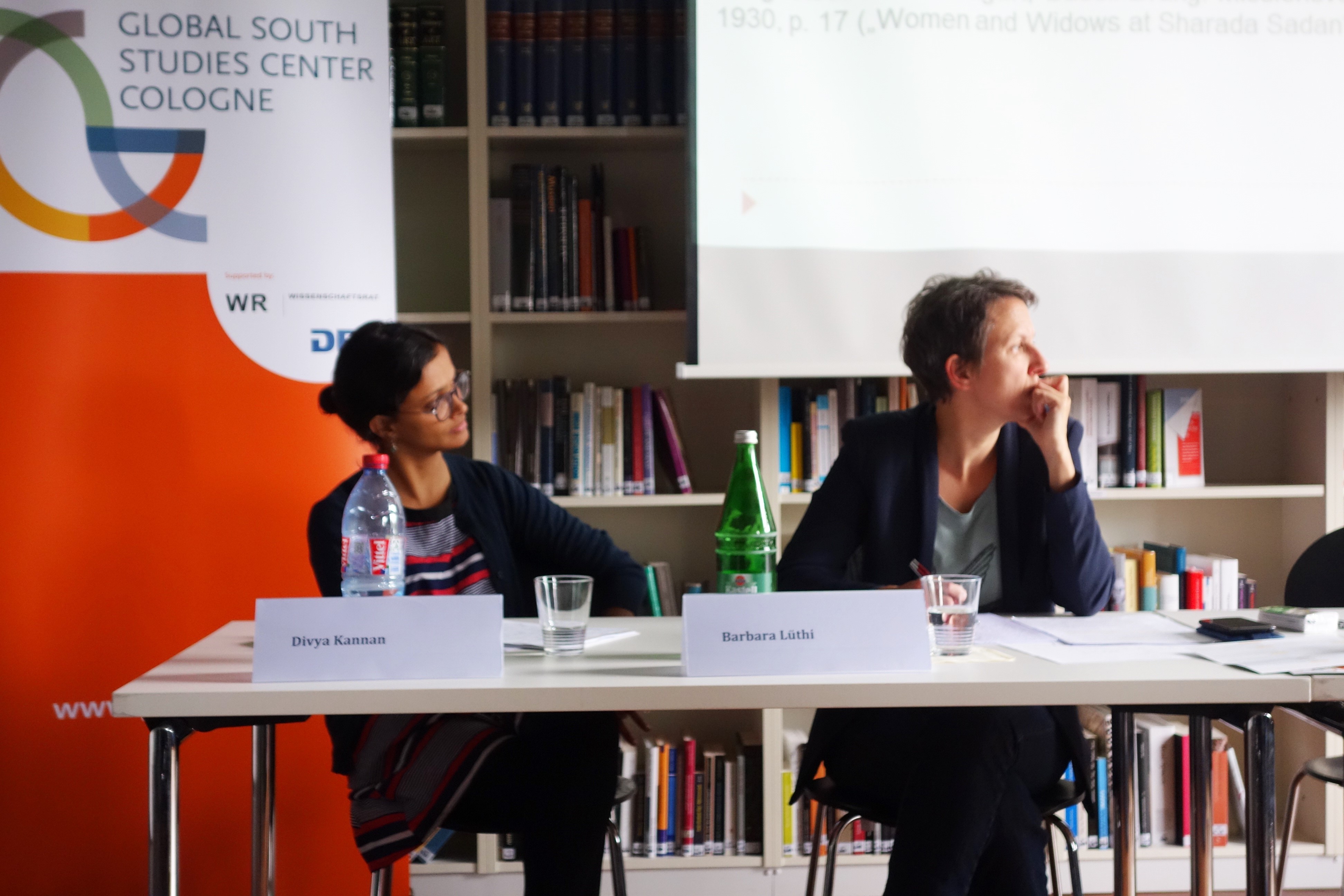Archive
Vortrag: Kolonialismus im Deutschen Kaiserreich
Eine Veranstaltung der Stiftung Bundespräsident-Theodor-Heuss-Haus am 14. Juli 2022.
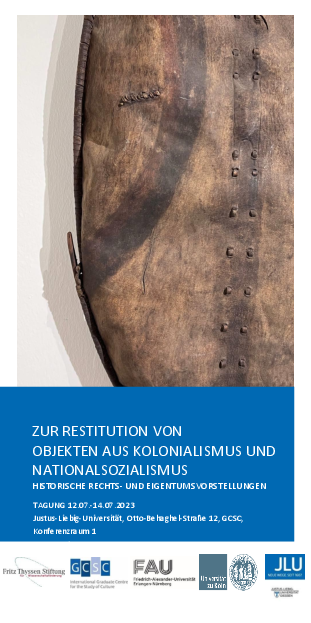
Workshop: Colonial Violence beyond the Borders of Empires
Further information regarding the workshop can be found here.
Further information regarding the workshop can be found here.
Colonialism as Shared History. Past, Present, Future
Conference organized by Friedrich-Alexander Universität Erlangen-Nürnberg, Georg-August Universität Göttingen and Universität zu Köln, in cooperation with the Gerda Henkel Foundation and with support of the German Federal Foreign Office. Media partnership with Deutschlandfunk Kultur.
Convenors: Bettina Brockmeyer, Rebekka Habermas, Ulrike Lindner
‘Africa’, ‘Asia’ and ‘Oceania’ are no longer objects of European history and European decision-making. In the post-colonial age of globalization, we are facing an era of ever closer political, economic, social and cultural interdependence, but also strong ruptures in societies around the world. In order to better shape our future together, we also need to come to a common understanding of our history – in the sense of a shared history, although not necessarily assessed equally in all parts. We need political, cultural and academic exchanges, including disputes about the colonial past in order to come to a better mutual understanding of our colonial history and of the strong roots of racism.
Meanwhile controversial public debates about the colonial past have been going on for decades in almost all countries, the debate in Europe has intensified only recently. We are witnessing public debates about an entangled global history and the question of how to deal with the material and immaterial witnesses of such an interconnectedness. These debates take place in universities and museums, in theatres, literature and newspapers, in parliaments or civil society initiatives and on the streets. The focus lies on questions about the restitution of colonial objects, the impact of colonialism and racism, and different ways of reading history.
However, remembering and coming to terms with a shared history can only be successful if the demand for a discussion on equal terms does not remain an empty promise. To this end, it must be possible to create a diverse and heterogeneous space of memory, the arts, and research, which deepens existing cooperation and opens up new forms of cooperation.
The aim of the conference is, therefore, to bring together research, the arts and civil society – namely from the former colonies and Germany – in order to question the past, present and future of colonial memory. What could a shared history look like? The conference should help to concretize and set in motion co-operative research.
Museum Collections in Motion. Colonial and Postcolonial Encounters
15-17 July 2019 - Conference organized by: University of Cologne, Bremen University, the Rautenstrauch-Joest-Museum Cologne and boasblogs. Convenors: Anna Brus, Larissa Förster, Michi Knecht, Ulrike Lindner, Nanette Snoep, Martin Zillinger
The growing public awareness of colonial violence and historical injustice has put ethnographic collections into the spotlight of social and political debates. Museums are increasingly confronted with the challenge to decolonize their exhibition practices and examine their collection history for looted art, colonial entanglements, and systematic exclusions. The recent initiative of French President Macron to explore the modalities for restituting African objects from French collections has opened a new chapter in the debate on restitution and repatriation. While its actual implementation remains to be seen, the report by Felwine Sarr and Bénédicte Savoy has set a world-wide agenda for decolonizing museum collections and academic research in the coming years.
In order to envision alternative futures for these collections and new forms of co-operation, this conference brings together activists, curators, experts, young researchers and scholars from around the world. Over three days we will re-visit museum collections and the debates and practices that have evolved around them, discuss ongoing work in the longue durée of colonial and postcolonial encounters and bring views from the Global North and South into intensive dialogue.
Kein Platz an der Sonne - (Post)koloniale Universitäts- und Stadtgeschichte
16.05.2019 - Podiumsdiskussion und Vorstellung von Initiativen zur kolonialkritischen Universitätsgeschichte - mit Marianne Bechhaus-Gerst, Larissa Förster, Anne-Kathrin Horstmann, Bebero Lehmann, Stefanie Michels; Moderation: Ulrike Lindner
Die Veranstaltung widmet sich einem wenig bekannten Aspekt der Geschichte der Kölner Universität: Schon an der Handelshochschule – dem Vorläufer der Kölner Universität – herrschte eine starke Kolonialbegeisterung: Verschiedene Professoren, Lehrende und Studierende engagierten sich in Kolonialvereinen, es wurden koloniale Inhalte gelehrt und sogar einige Expeditionen durchgeführt. Nach der Gründung der Universität zu Köln 1919 bestand die Kolonialbegeisterung trotz des Verlusts der Kolonien durch den Versailler Vertrag fort. Ein Teil der Studierendenschaft wie auch der Professorenschaft befürwortete kolonialrevisionistische Ziele; viele waren weiterhin in Kolonialvereinen engagiert. Es gab auch während der Zeit der Weimarer Republik jedes Semester fächerübergreifende Veranstaltungen zur Kolonialwissenschaft. Konrad Adenauer, der maßgeblich die Gründung der Universität vorangetrieben hatte, war selbst von 1931 bis 1933 geschäftsführender Vizepräsident der Deutschen Kolonialgesellschaft und hatte sich schon vorher stark im Kölner Verein der Kolonialgesellschaft engagiert. Die enge Verquickung der Universitätsgeschichte mit Kolonialismus und Kolonialrevisionismus wirft zahlreiche Fragen auf, die auf dem Podium diskutiert werden sollen.
The Camp: Disruptions of Space and Time in Labour and Refugee Camps
04-05 October 2018 - Conference organized by: Research Area “Labour and Migration” (Global South Studies Center): Ulrike Lindner, Sabine Damir-Geilsdorf, Oliver Tappe and Gesine Müller.
When labour compounds or refugee camps close their gates, inhabitants often experience dramatic changes of their perception of space and time. Mobility gets restricted and regulated. As a result new time regimes that range from forms of ‘time pass’ to ‘extreme waiting’ restructure the rhythm of everyday life. This workshop focuses on exploring the specific transformative capacity of such camps and the consequences for (temporary) labourers and refugees who are subjected to new spatial and temporal configurations.
Investigating the spatiality and temporality of the camp connects two aspects of a specific state of exception. From a spatial viewpoint, the camp marks a strong break with previous lifeworlds, radical displacement, as well as an abrupt stop of (sometimes involuntary) mobility. Sudden immobilization goes along with other forms of spatial constraints. A new organization of space and time through technologies of discipline (from fences to clock) affect the inmates’ working or waiting bodies. Moving on to the temporalities of labour and refugee camps, we investigate new time regimes that correspond with capitalist labour management. Yet we also consider the impact of extreme deceleration of time when inmates are waiting months and years for something to happen.
This workshop revisits the barracones of the slave trade, the plantation coolie camps, and the camps of colonial workforces, and juxtaposes such historical examples of the camp with present-day workers’ compounds in the Gulf States, camps on Europe’s industrial farms, and the refugee camps lining the Mediterranean.
Black Germany 1880-1914
30 November - 18 December 2017 - Exhibition organized by Robbie Aitken & Ulrike Lindner
The exhibition Black Germany employs a number of biographies, accompanied by photographic images, in order to look at the development of a Black Diaspora in Germany from the 1880s up to 1945. In doing so, it provides insights into the routes and reasons that brought African men and women from the colonies to Germany pre-1914; it looks at forms of employment and the politics of black residents during the interwar period; and it touches on the fate of black residents and their German-born children during the period of National Socialism.
The exhibition will be opened by a panel discussion on „Erinnern/Vergessen: Die marginalisierte Geschichte Schwarzer Deutscher“ exploring various approaches how this rarely noticed part of German history can be re-included into the main historical narratives and the dominant culture of remembrance.
GRAINES Summer School
Workshop: Europe and its Colonial Legacy
11 -12 December 2015 - Postcolonial Perspectives on Europe
Workshop in the project “Europe: une histoire globale. XVIII°-XX° siècles” financed with the support of CIERA, Paris
Organized by: Ulrike Lindner (University of Cologne)/Barbara Lüthi (University of Cologne)/Jakob Vogel (Sciences Po, Paris)
GSSC Public Lecture: Catherine Hall
28 October 2015 - Slavery and Freedom re-visited: or What is a Man?
Lecture by Catherine Hall within the
Public Lecture Series of the GSSC:
Conference: Gender and Empire
23 -26 September 2015 - Exploring Comparative Perspectives and Intersectional Approaches
Organized by: Ulrike Lindner (University of Cologne)/ Dörte Lerp (University of Cologne)
Workshop: The Changing Margins of Europe
5 - 6 December 2014 - Frontiers and Demarcations of a Continent from the 18th to the 20th Century
Workshop in the project “Europe: une histoire globale. XVIII°-XX° siècles” financed with the support of CIERA, Paris
Organized by: Ulrike Lindner (University of Cologne)/Jakob Vogel (Sciences Po, Paris)
Workshop: Forms of Bonded Labour
23 -24 June 2014 - Conceptual approaches towards a new comparative research framework
Organized by: Ulrike Lindner/Sabine Damir-Geilsdorf/Gesine Müller/Michael Zeuske

